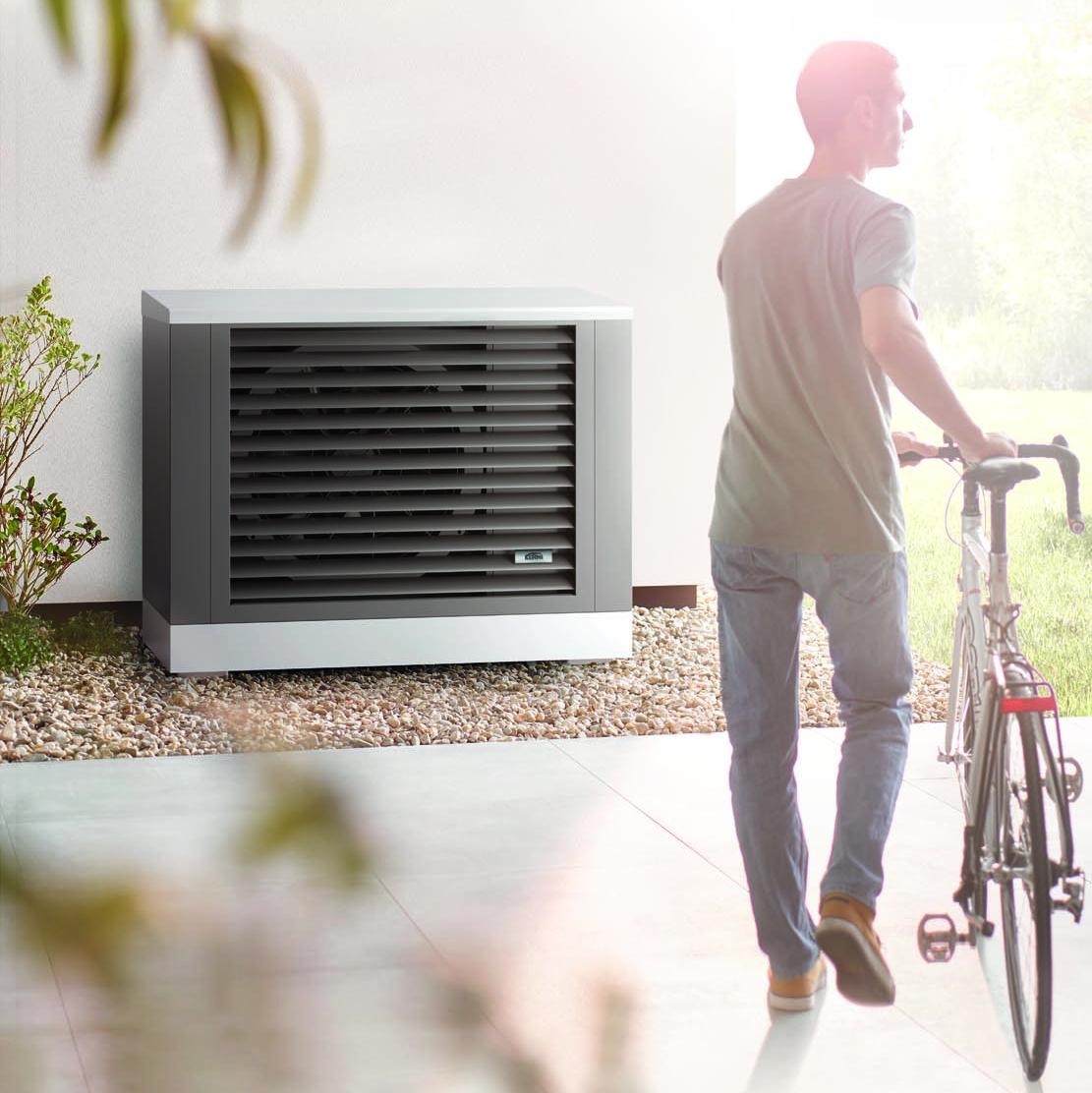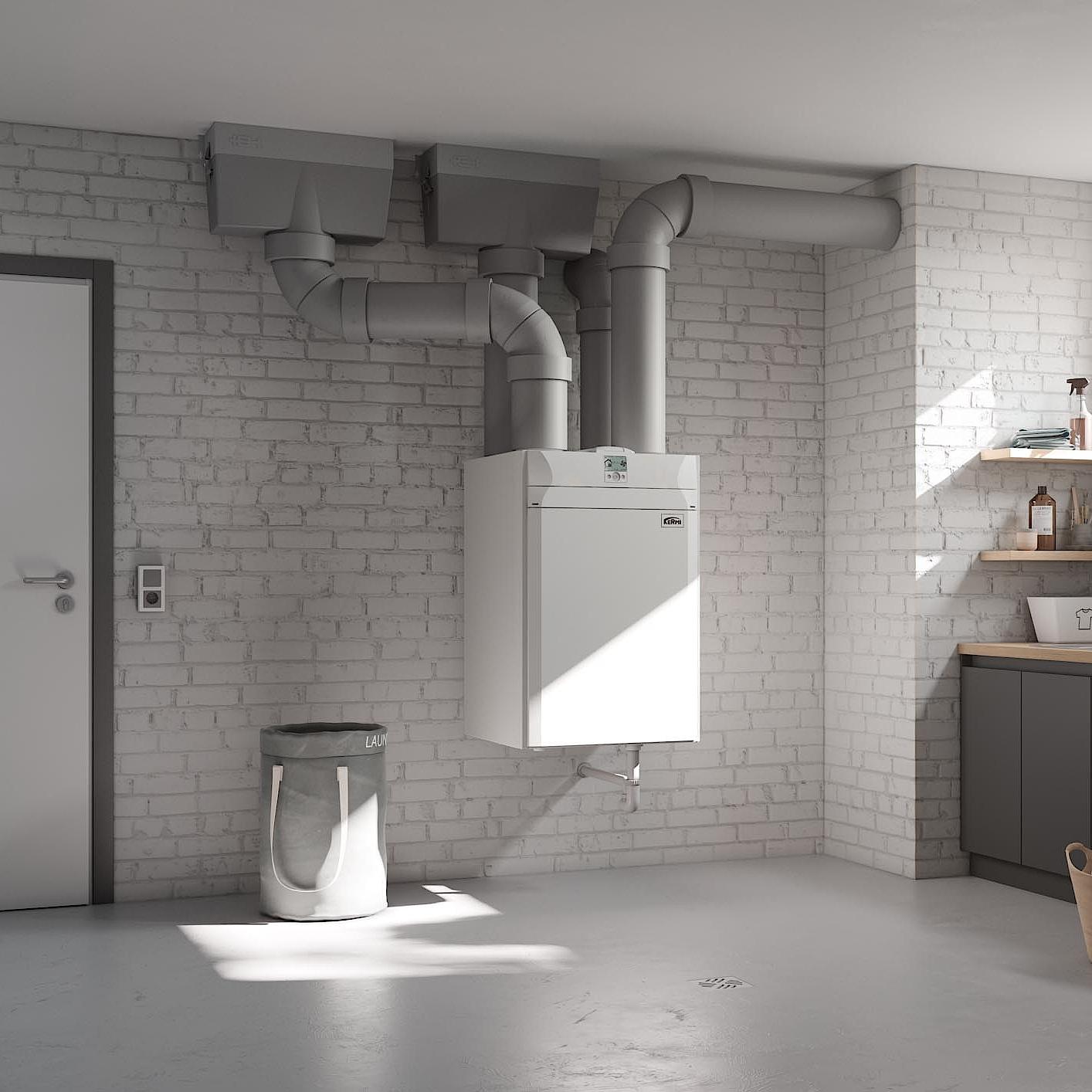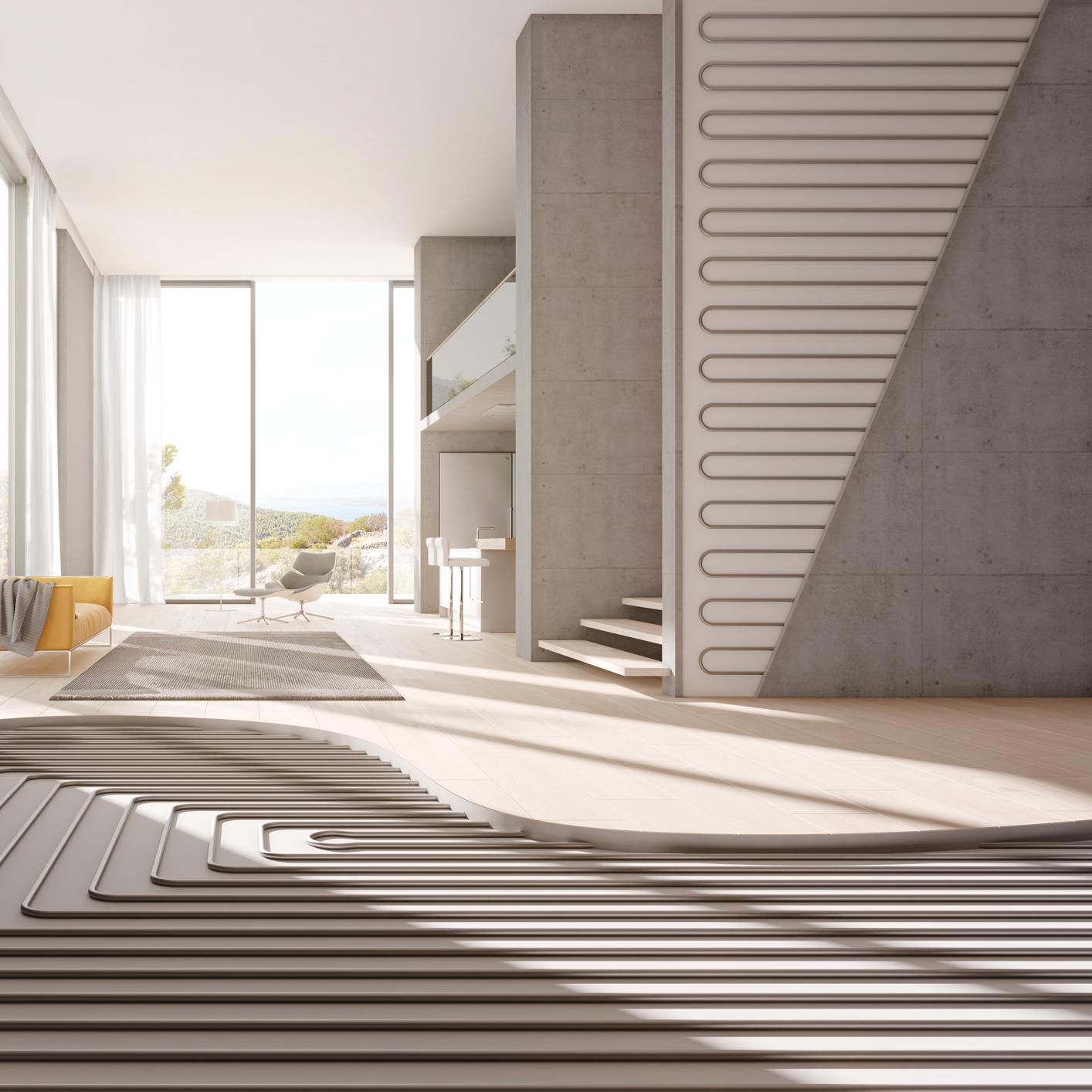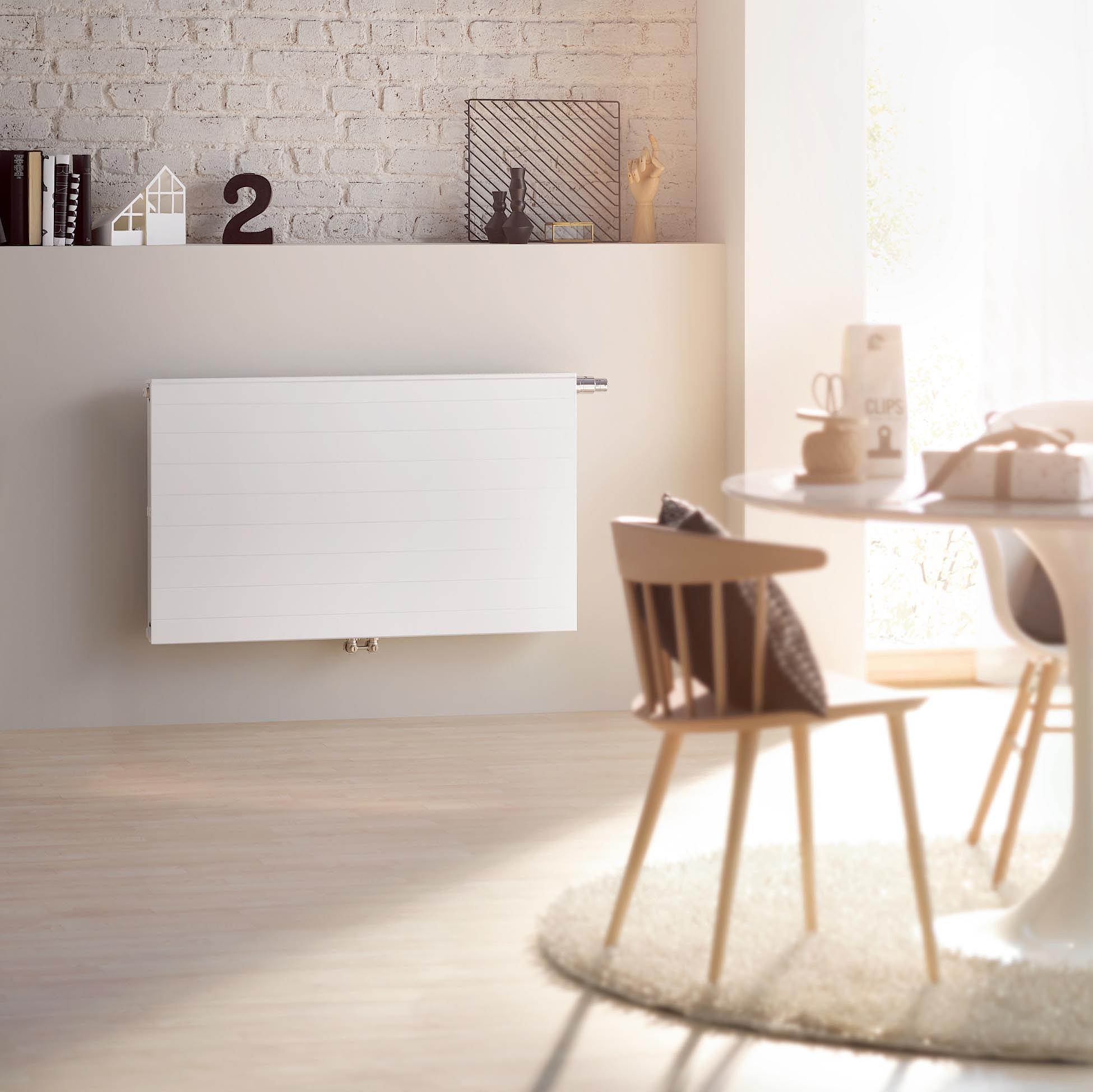Climate package

Subsidies for efficient buildings
In 2020, the German parliament gave its blessing to the government’s climate package. Through the Climate Action Programme 2030, it has grouped together laws and measures with the aim of promoting climate protection and, in the process, implementing the German Climate Action Plan 2050. By 2030, the aim is for Germany to have reduced its greenhouse gas emissions by at least 55 percent. In the long term, the German government is pursuing the goal of greenhouse gas neutrality by 2050.
Building and living in Germany is also set to become more climate-friendly in view of the fact that we consume about 35 percent of our total energy within our own four walls, especially as a result of heating and hot water. The sources of energy that we use for this are undergoing fundamental changes, moving away from nuclear and fossil fuels towards renewable energies and more energy efficiency. From 2026 onwards, the installation of oil heating systems will no longer be permitted in buildings where a more climate-friendly heat generation source is possible.
The German Federal Ministry for Economic Affairs and Climate Action (BMWK) has amended the Federal Funding for Efficient Buildings (BEG) scheme.
The BEG consists of three sub-schemes:
Federal Funding for Efficient Buildings – residential buildings (BEG WG)
German Federal Funding for Efficient Buildings – non-residential buildings (BEG NWG)
German Federal Funding for Efficient Buildings – individual measures (BEG EM)

The BEG is divided into 3 sub-programmes
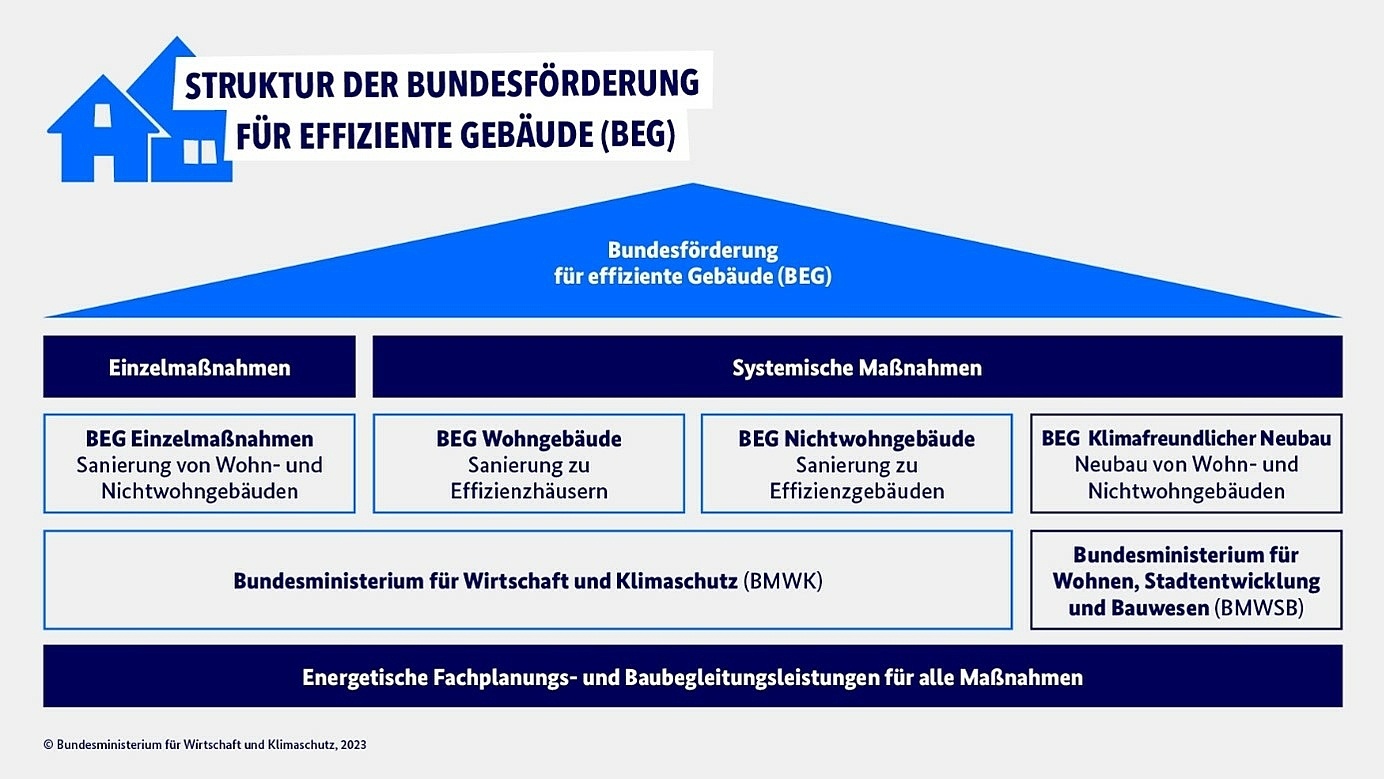
The BEG scheme for residential and non-residential buildings
In Germany, the systemic measures that are used to achieve the standards of an energy-efficient building in renovation projects or new builds have two subsidy levels available: BEG WG and BEG NWG. “BEG” is an acronym that refers to the Federal Funding for Efficient Buildings scheme. This applies to all residential buildings (WG) such as owner-occupied flats, detached houses, blocks of flats, and halls of residence, and to all non-residential buildings (NWG) such as commercial properties, municipal buildings, or hospitals.
KfW (German Reconstruction Loan Corporation) application
Individual BEG measures
These involve individual renovation measures on residential or non-residential buildings, such as replacing the heating system, optimising or insulating the outer envelope/roof, and installing ventilation systems. -> We can provide you with support if you choose Kermi x-well ventilation systems, for example.
BAFA (German Federal Office for Economic Affairs and Export Control) application
Source: German Federal Ministry for Economic Affairs and Climate Action
Kermi system products
Energy-efficient renovation and construction with funding from the state. State funding at a rate of 45 % is available,
covering not only heat pumps, but also residential ventilation, radiators, surface temperature control systems, and control components. Expenses for installation and commissioning as well as numerous outgoings for necessary surrounding measures can be subsidised as well. The complete Kermi indoor climate range offers all the components you need for an energy-efficient heating system. So you can benefit from subsidies for all your Kermi system parts. The Kermi system provides maximum energy efficiency thanks to sophisticated interaction between all its elements. As the individual components work in perfect harmony, the efficiency of the system as a whole is significantly improved. Each component in the system is designed to be highly efficient in its own right.

